Search
Remove Ads
Advertisement
Search Results

Definition
European Colonization of the Americas
The European colonization of the Americas was the process by which European settlers populated the regions of North, Central, South America, and the islands of the Caribbean. It is also recognized as the direct cause for the cultures of the...
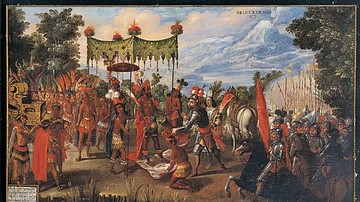
Article
The Iberian Conquest of the Americas
European explorers began to probe the Western Hemisphere in the early 1500s, and they found to their utter amazement not only a huge landmass but also a world filled with several diverse and populous indigenous cultures. Among their most...

Article
A Brief History of Tobacco in the Americas
The history of tobacco use in the Americas goes back over 1,000 years when natives of the region chewed or smoked the leaves of the plant now known as Nicotiana rustica (primarily in the north) and Nicotiana tabacum (mostly in the south...

Definition
Columbian Exchange
The Columbian exchange is a term coined by Alfred Crosby Jr. in 1972 that is traditionally defined as the transfer of plants, animals, and diseases between the Old World of Europe and Africa and the New World of the Americas. The exchange...
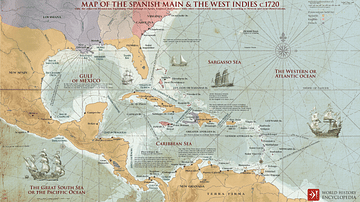
Definition
Spanish Main
The Spanish Main refers, in its widest sense, to the Spanish Empire in the Americas from Florida in the north to the northern coast of Brazil in the south, including the Caribbean. The term was initially more limited and referred only to...

Article
The Changing Interpretation of the Spanish Conquest in the Americas
The fall in 1519 of Tenochtitlan, the capital of the Mexica or Aztec Empire, as it was later called, laid the foundation for the Spanish colonial empire on the North American mainland. It was the first time that Europeans had subjugated a...

Article
Medieval Climate Anomaly in the Americas
To climatologists, the period of seven to twelve centuries ago was known as a "Climate Anomaly" or a "Warm Period" (800-1300 CE). To archaeologists, it was a time of great change, a period when cultural patterns were put into place that lasted...
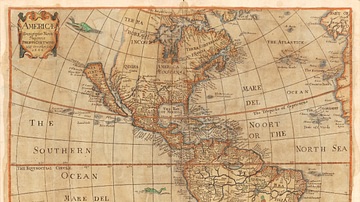
Image
Map of the Americas, 1666 CE
"Americæ descriptio nova", a map of the Americas in 1666 CE. Made by William Trevethen, Philip Chetwind, and Lessing Julius Rosenwald (1891-1979 CE). Published by Impensis Philippi Chetwing. From the Rosenwald Collection, Library of Congress...
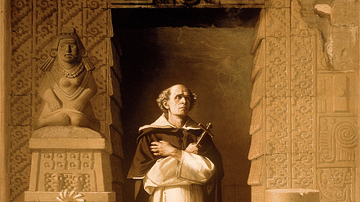
Definition
Bartolomé de Las Casas
Bartolomé de Las Casas (1484-1566) was a Spanish Dominican friar and former conquistador who revealed the atrocities of the conquests of New Spain and Peru and who strove to protect the basic rights of indigenous peoples in the Spanish Empire...
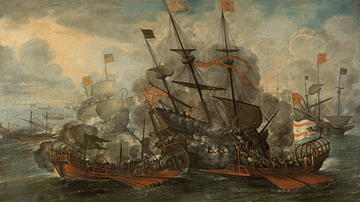
Definition
Spanish Treasure Fleets
From the 16th to 18th centuries, two treasure fleets sailed each year, one to Mexico and the other to Central America, then part of the Spanish Empire. There they collected precious eastern goods and the riches of the Americas, including...